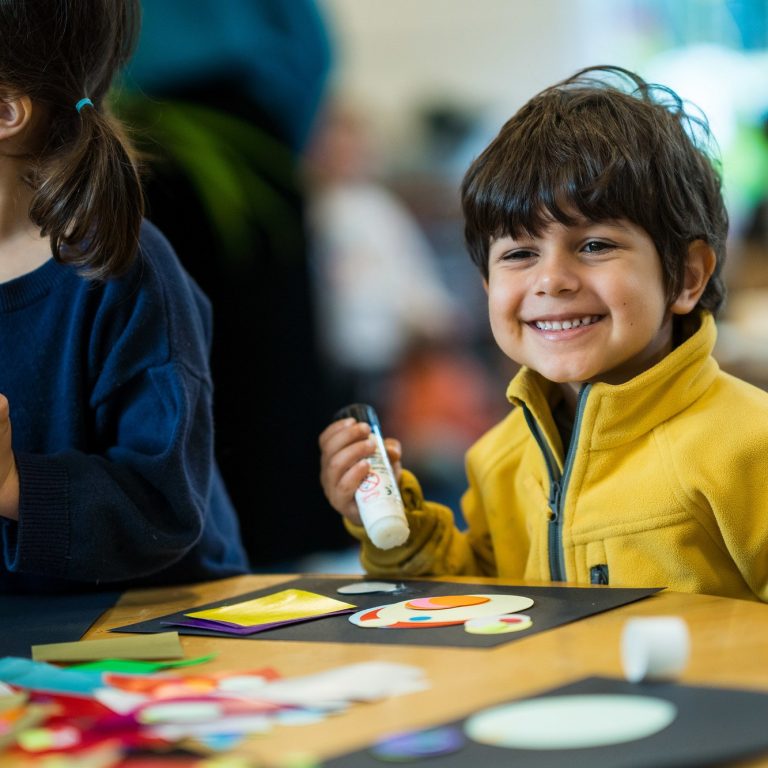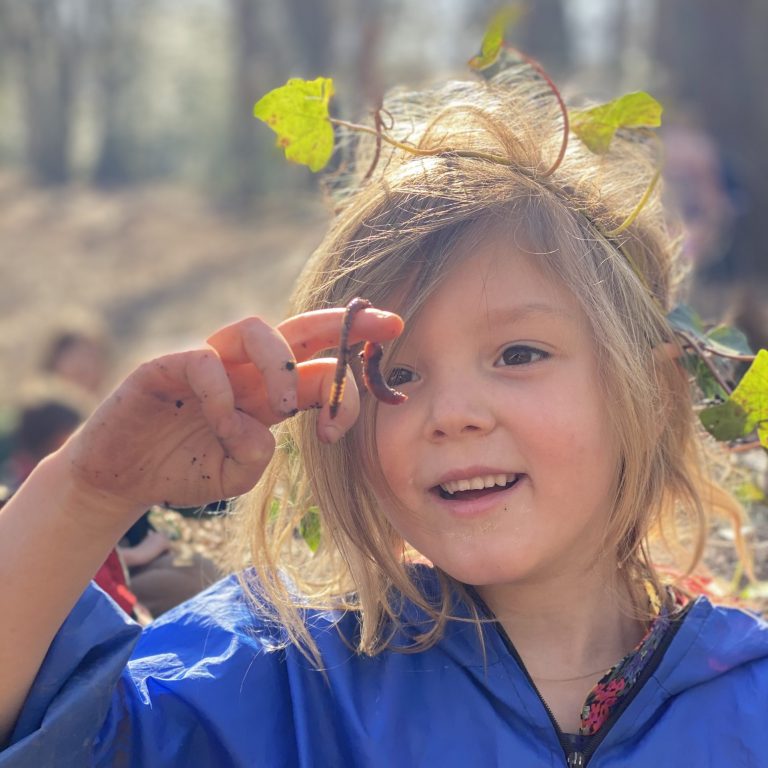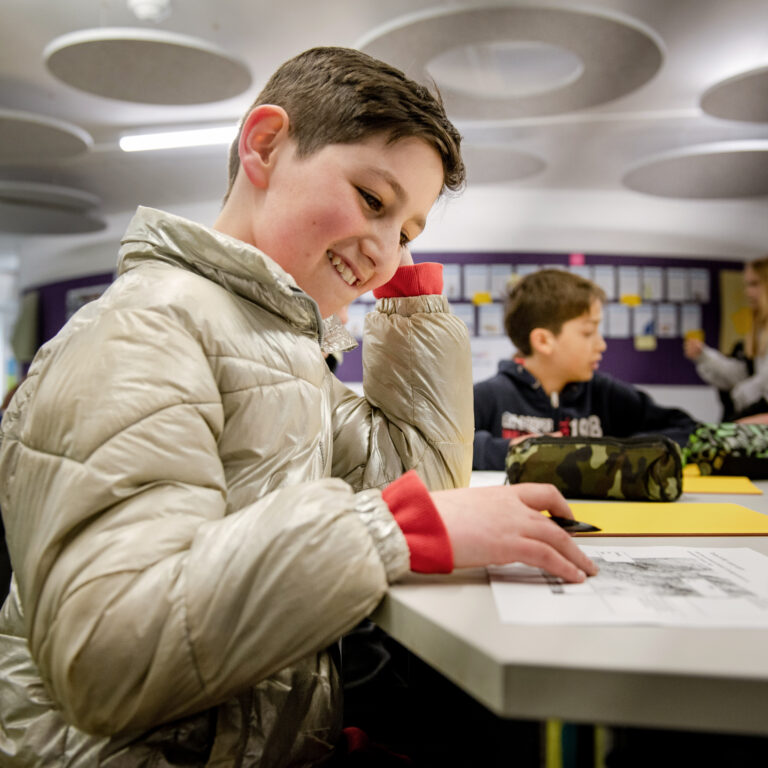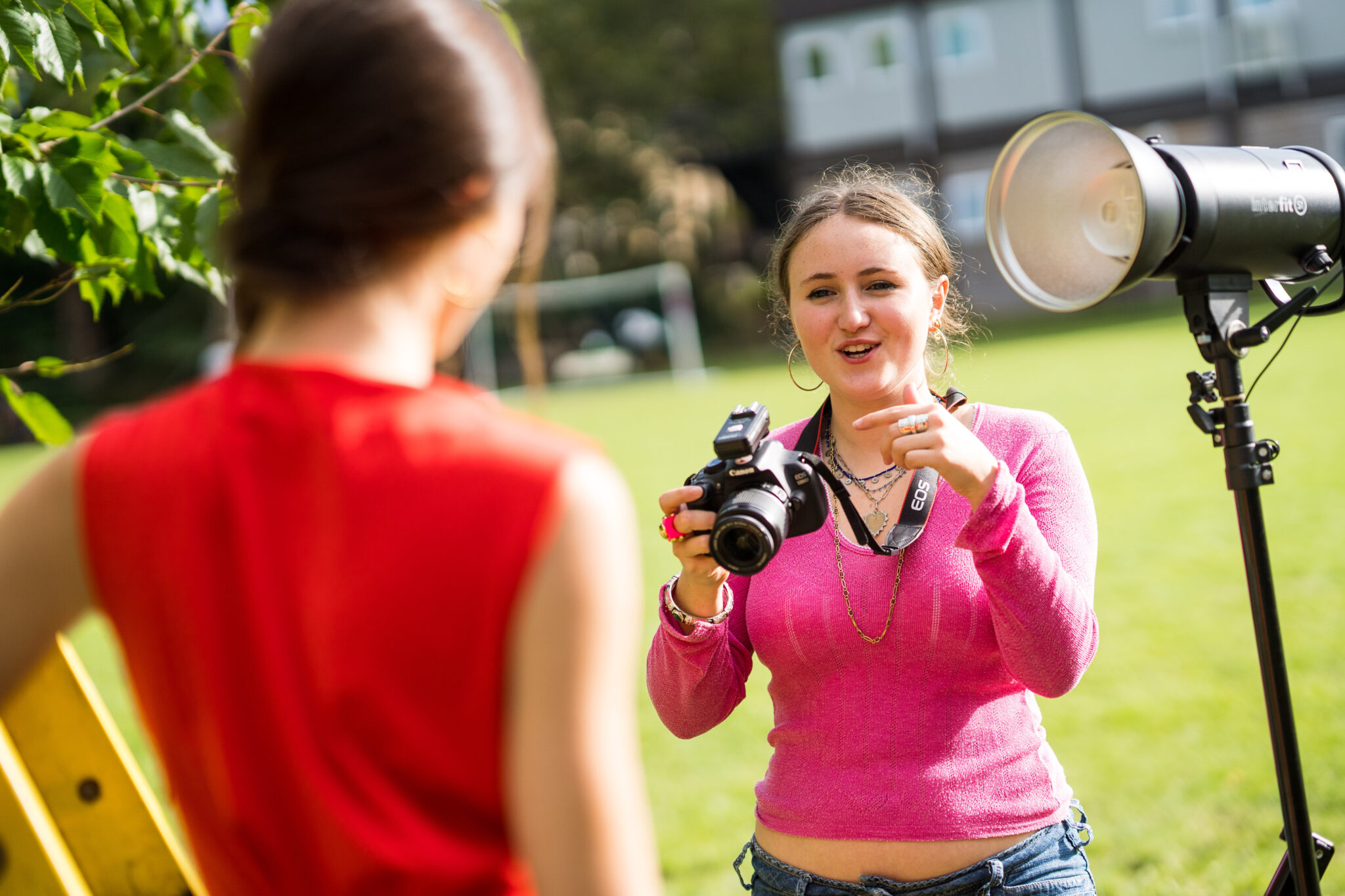Head’s Blog – AGM speech 2022
21st February 22
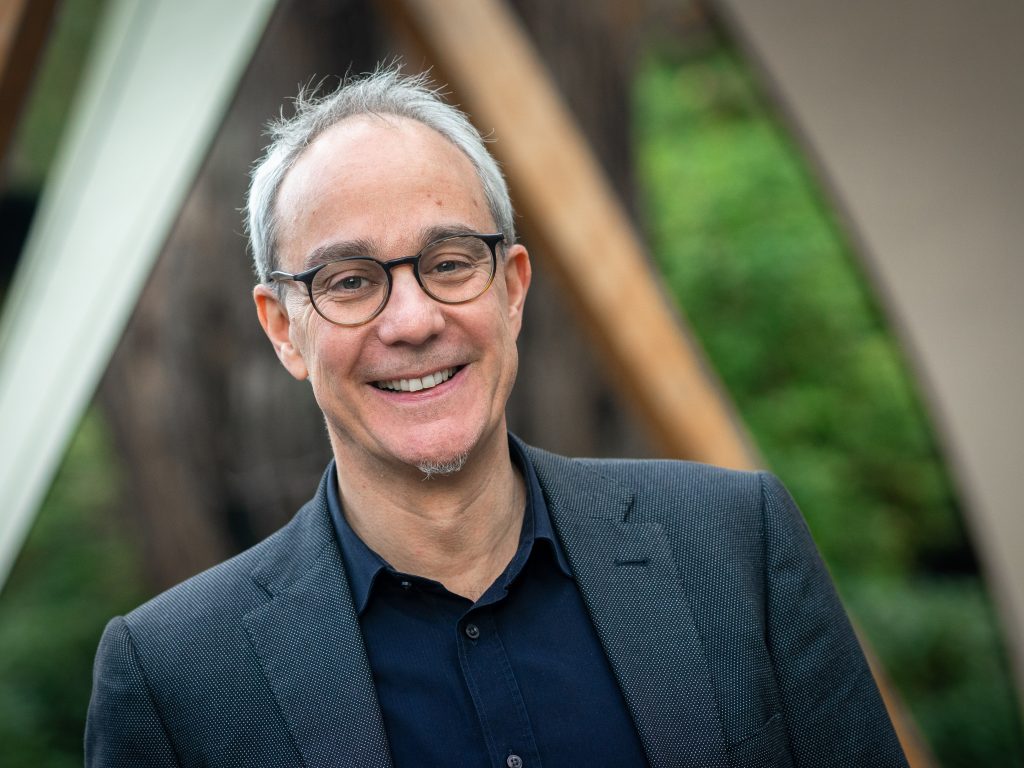
Head Robert Lobatto gave this speech at the recent AGM of The King Alfred School Society:
Tucked away in a semi-subterranean space and nestled between the Photography Studio and the stationery cupboard is a small, air-conditioned room. Inside, you find treasure, not of the shiny sparkling pirate variety, but photographs, documents and artefacts that go back to 1897. This is our archive, neatly arranged, with historical papers carefully tucked into see-through protective wallets.
As with any good archive, it lives and breathes, and Year 6 have recently been exploring its content as part of their Interdisciplinary Enquiry. They have discovered the original school song, complete with musical notation and the very frequent repetition of ‘Ex Corde Vita’. Wearing pristine white gloves, they have leafed through the handwritten school magazine of 1914 full of drawings and poetry. They have reviewed the manifesto dawn up by the founders in 1897, analysed the German bombs that fell in this neighbourhood in 1942 and studied the war years in Royston when this site was commandeered by the army.
Two pupils with a particularly artistic bent discovered paintings and sculptures of one of the old headteachers. One has produced a stunning oil portrait of Karen… the other is producing a sculpture of me, which is currently in development. I can’t say that I am not a little nervous. I have been photographed from all angles; unfortunately, my plea for more hair on the back of my head was not particularly well-received.
This kind of project will be familiar to everyone here tonight. It gives Year 6 freedom to explore and make sense for themselves of the material they are studying; by producing an exhibition at the end, it creates strong accountability, but not through a paper-based test; and it connects to the real-world, generating interest, passion, and excitement. Letters have been flooding my way from Year 6 requesting more girls cricket, regular lessons in the treehouse, and the return of the goat!
In the same week as I visited these classes, the Times Education Committee published its interim report. Chaired by journalist Rachel Sylvester, its 20 members include luminaries such as the professor of neuroscience at Cambridge, the Chair of the Common Education Select Committee, the president of the CBI, and the Chancellor of the Open University. They have heard evidence from employers, Universities, Headteachers, and previous Secretary of State [although, not I think, Gavin Williamson … remember him?] and their full report and recommendations will come out in the summer. This interim report painted a bleak picture of the state of education in England.
It lifted the lid on the paltry levels of provision and funding for early years, an area which had moved forward significantly in the early 2000s with the Sure Start centres. 1000 of these have shut down, funding is well below the European average and childcare is seen by current politicians more as a way to enable parents to work rather than as a vital educational experience for young children.
The Report then goes on to give a comprehensive overview of the problems of the school system.
It highlights a testing regime which automatically condemns a third of all pupils to ‘fail’ due to the methodology of comparative outcomes which caps the number of students who can achieve a pass at 66%.
It highlights the narrowing of the curriculum, due to the establishment of a clear hierarchy of subjects – with creative arts and design technology at the bottom – and decreasing take-up year on year.
It highlights the failure to develop broader skills wanted by employers such as communication, collaboration, and creativity due to the unrelenting focus on exam outcomes and the inexorable drilling that accompanies this.
It highlights the lack of deeper learning and individual sense-making, again due to the exam focus. This is well-illustrated by the story of the author Ian McEwan, who recalled his son asking him questions for an essay on his own book ‘Enduring Love’. When it came to getting his essay back, the boy found that he was marked down because his ‘uniquely-sourced’ explanations failed to fit into the teacher’s grid of correct answers. Perhaps this is no surprise when you consider that each summer [leaving aside the last 2 impacted by the pandemic], over 15 million scripts are marked by examiners in England alone. Whatever the intentions of its architects, anything on this scale is inevitably going to be limited and reductionist.
And the report highlights well-being. There are multiple causes of mental health challenges, but it found that many students themselves cited the pressure of exams as a driving force. 1 in 6 young people are now seen to suffer from a probable mental health disorder and scarily more than half of adult mental health problems emerge before the age of 15. British children are among the unhappiest in the world. The OECD found that pupils in the UK suffered the steepest decline in life satisfaction between 2015 and 2018 and ranked 34th out of 35 countries for fear of failure.
So, as I said earlier – this commission, drawn from a broad political evidence base, paints a bleak picture. It has been clear to me for a long time that this is primarily driven by the nature of the accountability system for schools. The high stakes mean that the future of a school depends on Ofsted’s judgement. Ofsted’s judgement correlates very strongly with exam results. In this situation, it is no surprise that schools chase the data outcomes above all else.
I knew this system intricately until 2015, before I came to KAS. Schools that received poor Ofsted ratings in the local area were closed or taken over by Multi Academy Trusts (some good, some less so). This in itself was not the problem – it was the fear of what could happen that forced these schools to define what they did almost entirely by the narrow set of data measures demanded by the accountability regime. I could see at the time how Government-led changes already in place were only going to intensify in the future. Seven years later, Amanda Spielman, the Head of Ofsted, which is driving so much of this, talks about the ‘corrosive effect’ these dynamics have had on learning, well-being and the school system.
When we use the report to hold a mirror up to our experience at KAS, what do we find?
Let’s start with the narrowing of the curriculum and the squeeze on creative subjects. Well, there is no question that we have gone in the opposite direction. Art, photography, drama, music, DT are some of our most popular courses in years 10 and 11. And this year, we are increasing the amount of choice students have so they can take more of these if that is their interest. The idea that these subjects are less demanding is a myth. They nurture conceptual understanding, critical thinking and individual responsibility, as much, if not more, than many other parts of the curriculum.
How about the development of broader skills and attributes much valued by employers, such as collaboration, independence and creativity. Do we too, as the report lays out, squeeze these out of the system due to drilling knowledge and exam technique from an early age?
Well, KAS has long defined education broadly, and this is only becoming more explicit and more intentional with recent developments.
There is powerful work taking place in the lower school building these core skills and attributes in age-appropriate ways from reception upwards. Go into any classroom and you will see staff and children reflecting on resilience, and curiosity, and risk taking.
The 6-8 curriculum places these skills and attributes front and centre in the Interdisciplinary Enquiries, in the work of Crew, and in our signature projects such as the Village.
Moving up the years, although the exam system makes this less easy, the development of these skills and attributes, and creating space for students to find meaning for themselves remains important. New courses at years 10 and 11, such as the UAL performing arts course and our home-grown Global Challenges course, build on the experience in years 6-8. Meanwhile, the HPQ and EPQ create a channel for older students.
As pointed out in the film ‘Most likely to succeed’, there are some trade-offs here; greater focus on skills and attributes inevitably means less focus on the breadth of knowledge. In an age however where knowledge is so accessible via our laptops and phones, this is a trade-off well worth making. It provides a much more balanced and rounded approach to learning. Just like the narrowing of the curriculum, it is, I’m sad to say, the rest of the system which is imbalanced and failing to keep up with the needs of today’s world.
And what about well-being? One of the major drivers for child and teenage unhappiness is the feeling of not being good enough. Part not all, is in relation to school achievement. It is interesting how many enquiries we get from students at high pressure schools who, however talented and able they are, often feel they do not measure up to their peers.
Children will always compare themselves to one another, but schools can have a very different approach in this area. Many schools use the fear of comparison as a motivator to work hard, not always aware of the damage they do in the process. In contrast, avoiding the ordering of children, valuing everyone’s achievement on its own terms, being proportional and mindful about high stakes assessment is, and has always been, the KAS way.
Before we get carried away with ourselves however, it is important to recognise that we too have much work to do. Some established areas need development, and other areas are in their infancy. How can we, for example, assess skills and attributes in a meaningful way? How do we move forward on Diversity, Equity and Inclusion? How do we embrace the challenges of environmental sustainability and climate change?
Nonetheless, when we take a step back and compare ourselves to the picture painted by the commission, it is a powerful reminder of why we all find ourselves here tonight.
And now we need to take a step further. We are a charity as well as a school. Our role is not only to educate our own KAS community, but to turn the dial in the wider system. This was the intention of the school’s late Victorian founders, and it is just as urgent today.
We need to advocate for deeper learning in the classroom, rather than superficial preparation for testing which all the research shows is forgotten within a few months.
We need to advocate for the creative subjects which brings millions to the economy as well as personal and communal cultural richness.
We need to advocate for the development of skills and attributes both for personal development and employability in an uncertain and changing workplace.
And we need to advocate for a child-centred approach to schooling where the needs of the individual take precedence over the external pressure to meet institutional accountability measures.
And how do we play this advocacy role?
We are moving towards becoming an early years’ hub on Ivy Wood, which will support staff development for teachers and TAs across the local area. This in itself will not solve all the early years challenges, but it is a powerful contribution to a neglected area.
Through the Rethinking Assessment network, of which we are now firmly established as one of the key leading players, we can share our 6:8 work on a wider scale with schools who are keen but tentative to take a similar step; we start leading our first workshops after half-term.
Our conference in March, Education on the Move, will bring together previously fragmented innovators for the first time in one place – sharing ideas based on our common beliefs, and inspiring those who wish to embrace our broader vision of education.
King Alfred would love to change the world by itself – though that is perhaps too much to ask. But what we can do is recognise we have an approach, a philosophy and a history that addresses many of the problems that have been identified by the Times Educational Commission. We can use our experience, our know-how and our passion to join with others, build partnerships and make a difference on the ground. In this way, we will play our important part in turning the dial.
To finish, I would like to return to the Year 6s.
As well as working with the Archive, they also met and interviewed a group of Old Alfredians, some of whom had been here as far back as the 1940s.
“Was it interesting?” I asked a couple of the pupils. “Fascinating” they said, “we loved their stories about school life.” “Any surprises?” I asked. “Well, a lot of what they said made it sound quite similar to what we experience today, although I think they had a bit more freedom to roam around.” “And did they have anything in common?” I finally asked. “Oh yes,” they both replied. “They all wanted to make the world a better place.”



